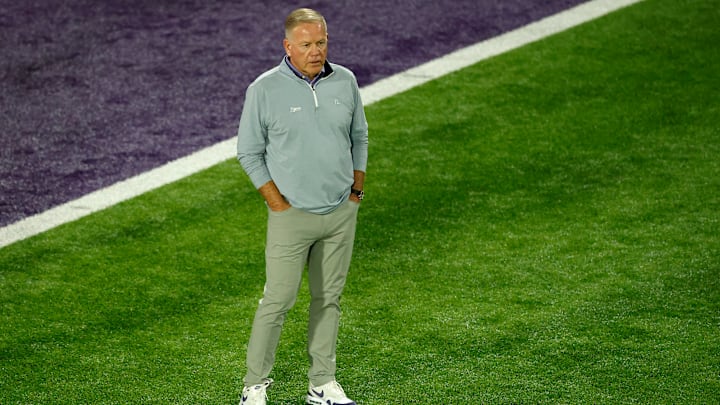This week in College Football we saw one of the most unique stories of this new NIL era unfold in Knoxville. It was first reported on Thursday by On3's Pete Nakos that Nico Iamaleava and Tennsee were in the middle of NIL negotiations that could result in the Quarterback transferring if his demands weren't met. Friday was seemingly the beginning of the end as Nico Iamaleava didn't show up to practice the day before the Spring Game.
On Saturday both sides decided to part ways with Nico Iamaleava deciding to enter the transfer portal when it opens next week.
Sources: Tennessee is moving on from starting quarterback Nico Iamaleava. Tennessee coach Josh Heupel informed the team of the decision at a team meeting this morning. Iamaleava missed meetings and practice on Friday, which was the driver of this decision. pic.twitter.com/BsdhJMDXiz
— Pete Thamel (@PeteThamel) April 12, 2025
The story is a roller coaster ride starting with his record-setting NIL deal coming out of High School, which was against the rules at the time. As quarterbacks started to surpass his NIL contract numbers, Iamaleava wanted to renegotiate with a reported asking price of $4 million for next season, which Tennessee wouldn't budge on. Given that Iamaleava was willing to skip practice risking the entire situation blowing up it's likely he already has a deal lined up at a next program.
After the LSU Football team's Spring Open Practice on Saturday, Brian Kelly was asked about the situation to which he said the following.
"I mean, I think, you know, we’ve got a settlement that is in the throes of being decided. The house settlement is coming close to bringing us, most likely, some form of revenue sharing. I think there’s changes coming in NIL, I think this is the first version of corrections, maybe. And, you know, I think that we’re going to see a lot of this. This was a new world, and I think we’re going to navigate it the best that we can, but I think that there’s going to be other situations that come, and we’re just going to have to do the best we can."Brian Kelly
If anyone knows some changes may need to be made it's Brian Kelly who held a commitment from the Nation's top overall recruit for the majority of the recruiting cycle until Michigan came in with a record setting offer after Underwood said Michigan doesn't have a track record of developing QBs.
At some point, the sport will need to swing back toward setting rules that set a standard in the sport rather than allowing players and the programs at times to get away with everything. The Iamaleava situation could be a turning point in the sport where collectives and players set contracts that hold both sides of the party to holding up their end of the deal but, there's plenty of work to be done across the sport.
